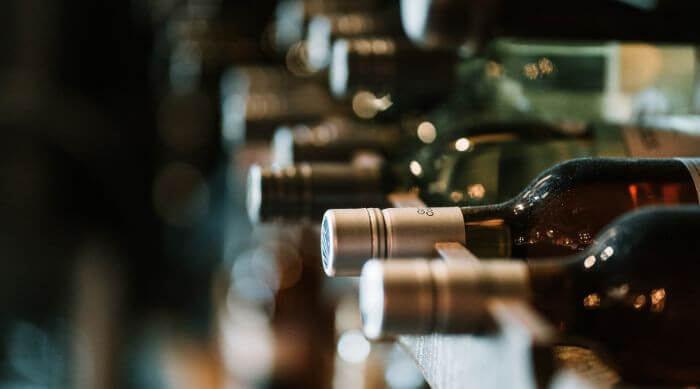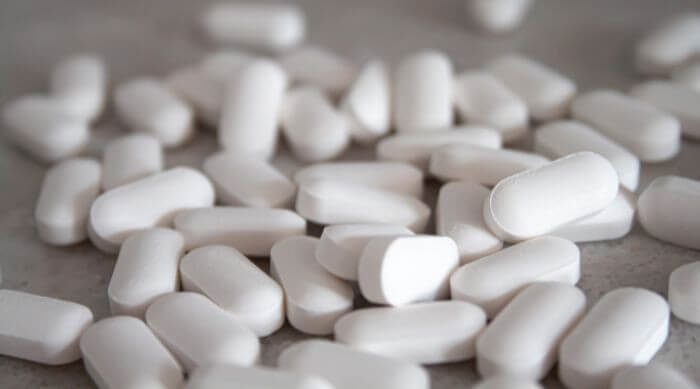Blood clots can cause scary medical issues like ischemic strokes and heart attacks. Wine’s blood-thinning effects may be tempting if you think you’re at risk for clots, but drinking too much could cause other problems.
Is alcohol a blood thinner? Alcohol is a mild blood thinner. In low to moderate amounts, it can act as an anticoagulant and reduce your risk of blood clots.
That doesn’t mean you should increase alcohol consumption to protect against clotting. You also shouldn’t skip out on prescribed blood-thinning medications in favor of red wine.
Let’s take a closer look at alcohol’s effects on your blood and whether wine’s potential benefits outweigh the known risks.
Table of Contents
How Alcohol Affects Blood
Alcohol interferes with your body’s normal clotting processes. It reduces the number of platelets produced in your bone marrow and can prevent existing platelets from clumping or sticking together. That creates an obstacle to blood coagulation, or blood clotting.
Blood clots cause serious issues like ischemic strokes, heart attacks, pulmonary embolisms, and deep vein thrombosis. People at an increased risk for clotting disorders and heart disease may be put on anticoagulants.
What are the consequences of having blood that is too thin? The consequences of having blood that is too thin are a reduced risk of blood clotting but an increased bleeding risk.
Short-Term Effects
In the short-term, moderate alcohol use has a limited effect on blood clotting. That might sound good if you’re worried about thick blood or potential buildups, but it also increases your risk of bleeding.
Let’s say you injure yourself after a night of heavy drinking. You could bleed more than normal. In extreme cases, excessive bleeding can be life-threatening.
Drinking more than 3 drinks at a time may also raise blood-pressure and lead to a short-term boost in cortisol production. Cortisol is the stress hormone responsible for your fight-or-flight response. More cortisol means more oxidative stress, increased heart rate, and barriers to decision-making.
Long-Term Effects
When you’re hurt, blood clotting helps you heal. Proteins in your blood called clotting factors form clots to stop excessive bleeding.
In the long-term, too much alcohol can increase your risk of bleeding. When your risk of bleeding increases, your risk of serious medical issues like hemorrhagic stroke increases. You may also find that you bruise more easily, feel more tired than usual, and suffer from more nosebleeds.
Heavy drinking can also lead to digestive issues, liver disease, and a higher risk of heart disease and certain cancers. It can make it harder to lose weight and cause high blood pressure.
Does alcohol affect your blood pressure? Alcohol can affect your blood pressure. In the short-term, it can cause a temporary spike, but heavy drinking over time can lead to sustained hypertension.
The healthiest wine in both the short- and long-term is non-alcoholic wine. When you sip on Surely, you don’t have to worry about wine’s blood-thinning properties because there’s no alcohol in that glass.
You will find nothing but the good stuff in our wine–especially the flavor! Start with our canned bubbly red if you like a little fizz with your red blends.
Wine and Blood Thinners
Wine can thin your blood just like any other type of alcohol. The amount you need to drink for that effect varies by person. Heavy drinkers may have a higher tolerance before getting drunk, but that doesn’t mean they feel alcohol’s blood-thinning effects any less.
Will two glasses of wine thin your blood? Two glasses of wine can thin your blood. Your metabolism, weight, and even what you ate that day all matter when it comes to the effects of alcohol and how long the effects will last.
Types of Blood Thinner
Blood thinner medications won’t break up existing clots, but they can prevent future blood clots from forming. There are 2 main types of blood thinners:
- Anticoagulants: These medications slow down your body’s blood clotting processes. Common examples are injectables like heparin and oral medications like warfarin.
- Antiplatelets: These drugs prevent platelets from sticking together and forming clots. The most common one is aspirin, but your doctor may prescribe a more heavy-duty blood thinner like clopidogrel, or Plavix.
Is Wine a Good Alternative to Prescription Blood Thinners?
Wine is not a good alternative to prescription blood thinners. No right-minded doctor would ever prescribe an evening glass of wine over blood-thinning medications if you’re at risk of forming clots.
Wine’s effects on your blood are very temporary, too, and there’s no way to know where that safe limit is for you when it comes to alcoholic beverages.
Can You Drink While Taking Blood Thinners?
You really shouldn’t be drinking alcohol while taking blood thinners. Blood-thinning medications thin your blood in a safe, controlled way. Adding alcohol into the mix could mean excessive blood thinning. Alcohol can also decrease the effectiveness of medications.
Heavy alcohol use is more likely to increase your bleeding risk than a glass of wine here and there, but there really is no defined safe amount of alcohol when you’re on blood thinners.
Get individualized medical advice from your healthcare provider when deciding whether or not to drink on medications like blood thinners. They will likely tell you that saying no to alcohol altogether is best.
How to Offset the Blood-Thinning Effects of Wine
If your wine habit has you worried about your bleeding risk, a boost in vitamin K can thicken your blood naturally. You can take a vitamin K supplement or add vitamin K-rich foods like leafy greens, soybean oil, canola oils, and some fermented foods to your diet.
None of this advice applies when you’re already on blood thinners. Your doctor should be monitoring how quickly your blood clots with regular tests measuring your international normalized ratio (INR).
An imbalance in that ratio can increase your clotting risk or swing the other way and increase your bleeding risk.
If you have an inpatient or outpatient surgery on the calendar, your doctor will talk to you about the health risks of alcohol ahead of that procedure. (No, you shouldn’t drink before surgery, no matter how nervous you are.)
Wine and Circulation
Studies suggest moderate wine consumption may be good for circulation and offer some positive heart benefits.
Limited antioxidants in red wine in particular may increase high-density lipoprotein (HDL) cholesterol, or the “good” cholesterol, reduce oxidative stress, and improve blood vessels. Moderate wine drinkers may see positive effects on blood sugar management, too.
That all said, a healthy diet and exercise can provide all those benefits without any of the risks of alcohol.
The American Heart Association and most physicians agree: If you don’t already drink, you shouldn’t add red wine to your diet and expect significantly positive changes to your heart health.
Drinking less (or not at all) will always be better for you than even moderate drinking. It can take your body some time to adjust when you stop drinking, but a solid one-month detox should lead to better sleep, improved skin, and fewer stomach issues, for starters.
How Much Wine is OK?
Moderate wine consumption is OK for most healthy adults. The Centers for Disease Control and Prevention defines that as one standard glass of wine per day for women and 2 standard glasses of wine for men. A standard glass of wine is 5 ounces, so be mindful of heavy pours.
For those on blood thinners, there is no safe amount of wine. The same is true for anyone at risk of developing an alcohol use disorder or those with a history of alcohol addiction and binge drinking.
If you think you or a loved one have an unhealthy relationship with alcohol, support is out there. Talk to your doctor about addiction treatment center options or use these resources:
When to Talk to Your Doctor
Talk to your doctor if you’re worried about your alcohol intake or potential drug interactions. Or if you’re on blood thinners right now and experiencing side effects like severe pain, bleeding that won’t stop, extreme fatigue, or frequent nosebleeds, seek emergency care.
At Surely, we love a healthier glass of wine. For an intro to dealcoholized white wines, try our non-alcoholic white wine. For even less sugar, make it bubbly with our canned non-alcoholic Brut.
Sources
- Platelet count in men with a habit of alcohol drinking
- Influence of alcohol consumption on blood coagulation in rotational thromboelastometry (ROTEM): an in-vivo study
- Binge drinking is associated with higher cortisol and lower hippocampal and prefrontal gray matter volume: Prospective association with future alcohol intake
- Biochemistry, Clotting Factors
- Alcohol as a risk factor for hemorrhagic stroke
- Alcohol misuse, genetics, and major bleeding among warfarin therapy patients in a community setting
- When blood is thinner than water






